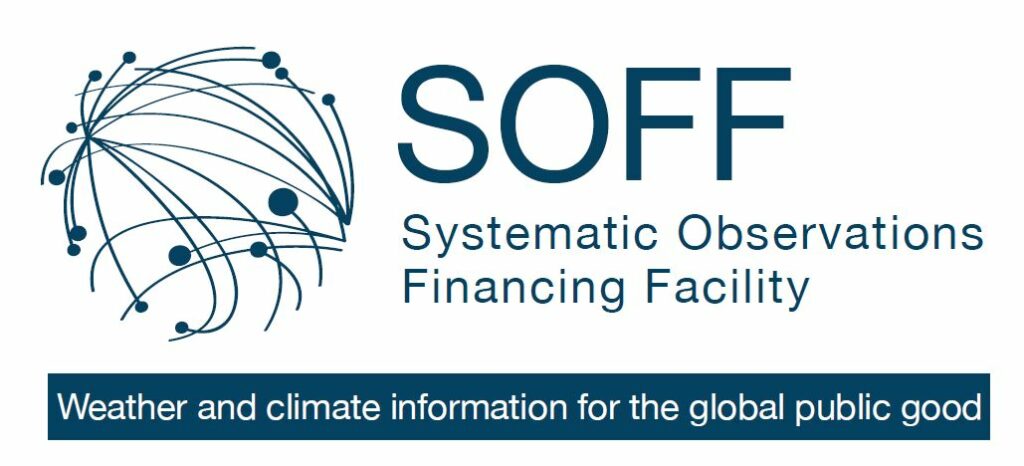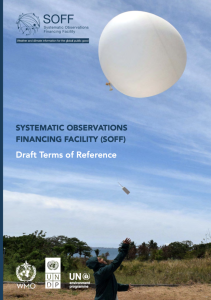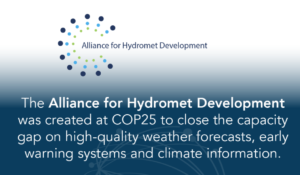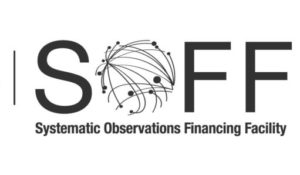Support grows for Systematic Observations Financing Facility

The World Meteorological Organization (WMO), the United Nations Development Program (UNDP) and by the United Nations Environment Program (UNEP) convened the third meeting of the forum of potential funders for the Systematic Observations Financing Facility (SOFF).
Some 50 delegations representing potential bilateral, multilateral and philanthropic funders as well as observer organizations including the Least Developed Countries (LDCs) Group and the Alliance of Small Island States (AOSIS) and the members of the Alliance for Hydromet Development joined the meeting.
In his welcoming remarks, WMO President Prof Gerhard Adrian highlighted that WMO Members, the National Meteorological and Hydrological Services who provide services that save lives and protect assets and livelihoods, face an exponential increase in demand for better information.
“They cannot deliver this information without weather and climate observations from across the globe and without internationally exchanging these observations,” said Prof. Adrian.

However, there are huge data gaps on surface-based observations, in particular in Least Developed Countries (LDCs) and Small Island Developing States (SIDS). These countries need targeted support, to be provided by the Systematic Observations Financing Facility (SOFF).
In view of rising temperatures and more extreme weather, there is an urgent need for strong climate action, which must be underpinned by the best available science and data. SOFF is key to achieving this.
In a video message, UN Secretary-General António Guterres stressed the importance of surface-based observations which “provide a foundation for the global climate action essential for achieving the Sustainable Development Goals and the objectives of the Paris Agreement.”
Inger Andersen, UNEP Executive Director, announced that SOFF will be co-created by three UN agencies. “Today I have the pleasure to announce that the United Nations Environment Programme, as a founding member of the Alliance for Hydro Development, has decided to jointly establish SOFF with the United Nations Development Programme and the WMO as a UN Coalition Fund.”
Achim Steiner, UNDP Administrator, added that UNDP is proud to support this initiative. “Vulnerable communities need access to the very best of technology to adapt to the effects of climate change and reduce risk. Yet more must be done to help them to generate and exchange surface based observational weather data.”
The objectives of the meeting were to present the Draft Terms of Reference and seek feedback as well as to discuss the way forward to the SOFF Pledging Forum on 28 October 2021 and the announcement of SOFF at COP26 in November 2021.
Delegates enquired on multiple aspects of the SOFF terms of reference, with focus on the complementarities and synergies between SOFF and last mile activities, the peer-to-peer technical advisory services, the role of the private sector, and the SOFF funding requirements.
Several organisations intervened with statements of support, including representatives of the European Centre for Medium-range Weather Forecasts (ECMWF), and the Group of Earth Observatory (GEO), the Global Network of Civil Society Organizations for Disaster Reduction (GNDR). Ambassador Carlos Fuller, COP Vice-President, delivered a joint statement of the LDC Group and AOSIS, encouraging bilateral and multilateral partners to contribute to the SOFF UN Multi-Partner Trust Fund.
In response, a first set countries provided indications of financial support for SOFF, to be formalised at the Pledging Forum.
The meeting ended with a call from Professor Petteri Taalas, WMO Secretary General, on potential funders to financially contribute to SOFF for the benefit of the global community. “I urge you, potential funders, to do what you can in the next four weeks before we meet again at the SOFF Pledging Forum to ensure that we have the minimum in financial pledges required to start SOFF operations.”
On the road to COP26, Patricia Espinosa, UNFCCC Executive Secretary, stressed the urgency of acting now. “We call upon governments as well as multilateral climate and environment financing institutions to fund this exciting and beneficial initiative. Achieving our climate goals under the Paris Agreement is possible only if all nations developed and developing work together.”
YOU MAY ALSO LIKE...







